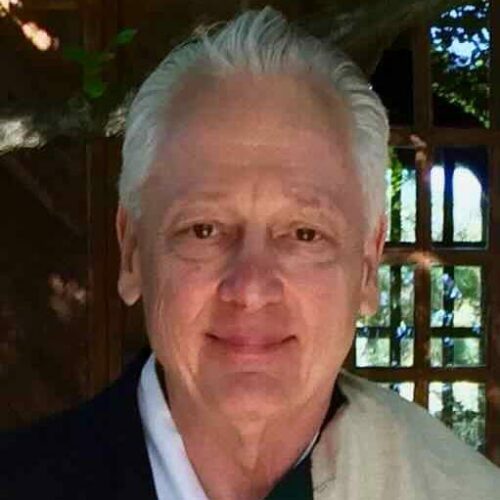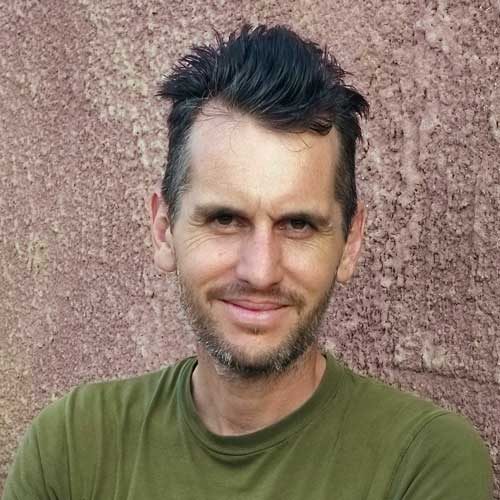Many long for a way to “integrate” their Buddhist practice with what is often called “the rest of my life.” This often fails. Doesn’t integration refer to separate things that must be brought together? In this talk, Gregory offers what he calls the Five Tenets of a Whole Life Path, a practical, yet demanding, way of engaging the teachings such that no action, no moment, no thought, is left out. There is no separation.
With Gregory Kramer recorded on November 19, 2017.
Found our teachings useful? Help us continue our work and support your teachers with a donation. Here’s how.
Discover more from the Dharma Library
-

Resting in Receptivity – Opening Up to What Liberates
Recorded :
September 18, 2022 This session is an embodied, compassionate exploration through our body-mind-heart into life. The door is open. What we long for is already there. This practise invites you to undo and deeply rest into the wonder of an receptive presence. BY LAL DED, TRANSLATED BY JANE HIRSHFIELD:I was passionate,filled with longing,I searchedfar and wide. But the…
-

Targeting Five Neural Networks for Embodiment, Healing and Awakening: An Integration of Network Neuroscience, Yogic Science, & Contemplative Wisdom
Recorded :
May 25, 2025 Roshi Fleet will describe five neural networks that play an essential role in our path of healing and liberation and how to strengthen these networks through a deeply embodied approach to mindfulness and awareness meditation. Roshi will guide participants in a set of practices designed to optimize neural function for enhanced attention stabilization, awareness, and…
-

Daily Meditation Recordings, with Caverly Morgan – Week of April 20
We’re very grateful to have Caverly Morgan hosting our Daily Meditation Series for North America. To find out more about Caverly, and to view her past recordings and contributions to Sangha Live, click here. Monday, April 20 Freeing the body from perceived limitation Wednesday, April 22 Welcoming what is Friday, April 24 Acceptance as a…
-

The Relative is the Absolute: Touching Race, Injustice, and Love
Recorded :
October 7, 2018 When we engage in the distortion that the relative plane is separate from the absolute – that it is something to transcend or ‘just an illusion’ – we ignore the reality of the illusion. When we know ourselves as a whole which subsumes everything, we cease to diminish or dismiss the mystery of being human….
-

Daily Meditation Recordings, with Nathan Glyde – Week of 07 July, 2025
We are delighted to have Nathan Glyde leading our Daily Meditation sessions this week. May they bring depth and ease to your practice.
This week’s theme is: Caring Resolve
Relieving suffering is the essential task of Buddha-Dharma, applicable to our inner and outer world. This calls for a spacious intimacy that is neither distant and indifferent, nor enmeshed and overwhelmed. Meeting pain with caring resolve loosens distress into ease, transforms reactivity into response, and liberates the limited heart into boundless connection.
Our Dharma Library thrives through collective generosity. Your donation helps sustain this offering for our entire community.
-

Daily Meditation Recordings, with Nathan Glyde – Week of 16 June, 2025
We’re grateful to have Nathan Glyde leading our Daily Meditation sessions this week. May they support and enrich your practice.
This week’s theme is: Stillness Dancing
Meditation cultivates vibrant tranquillity, not frozen silence. Like a stirred pond settling into clarity, we release agitation. Like an owl gliding soundlessly at dusk, we quiet ourselves – not to mute, but to listen deeply. In flowing stillness, we find wisdom and care, opening to a practice that is wholesome and inclusive.
Our Dharma Library thrives through collective generosity. Your donation helps sustain this offering for our entire community.
-

The Wisdom of the Body
Recorded :
March 8, 2020 If you seek to deepen in your meditation practice, there is no better friend than the body. Like a venerable teacher, the body has the power to draw you into the present moment, show you how to find stillness and even—if you listen closely—wake you up.
-

Daily Meditation Recordings with Nathan Glyde – Week of January 29, 2024
This week’s topic is “Getting A Feel For Feeling”. As we perceive, we add a feeling (vedanā) to our experience. When we are unaware of this process and react to the projected feeling, it causes unnecessary suffering (dukkha). However, understanding this process and responding skilfully leads to one of the deepest senses of freedom available. Let’s explore this freedom through our daily meditations this week.





Discussion